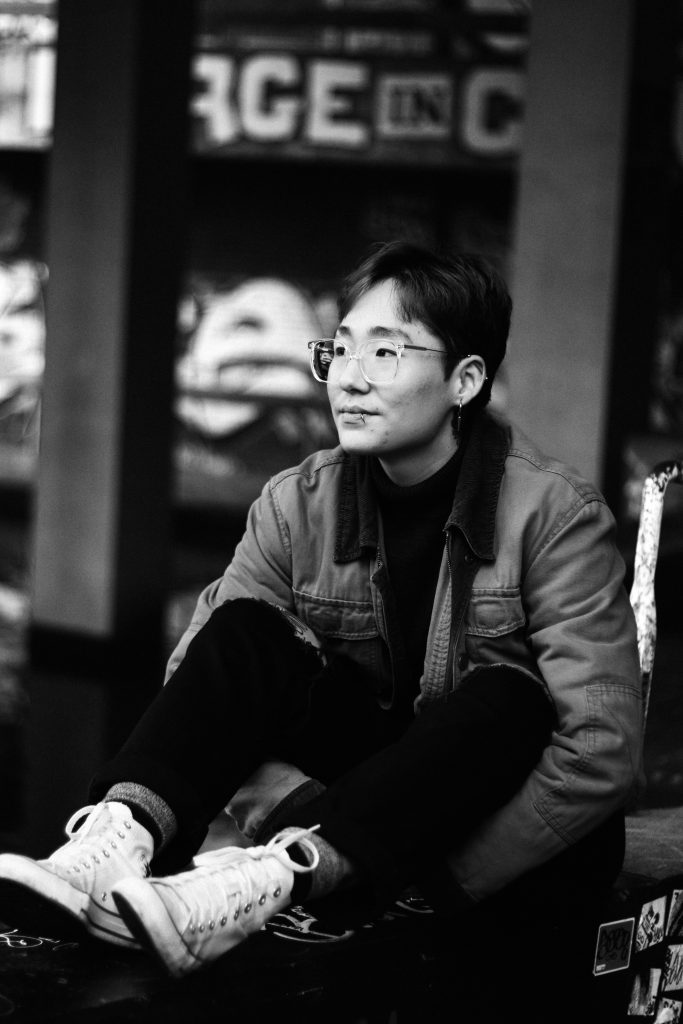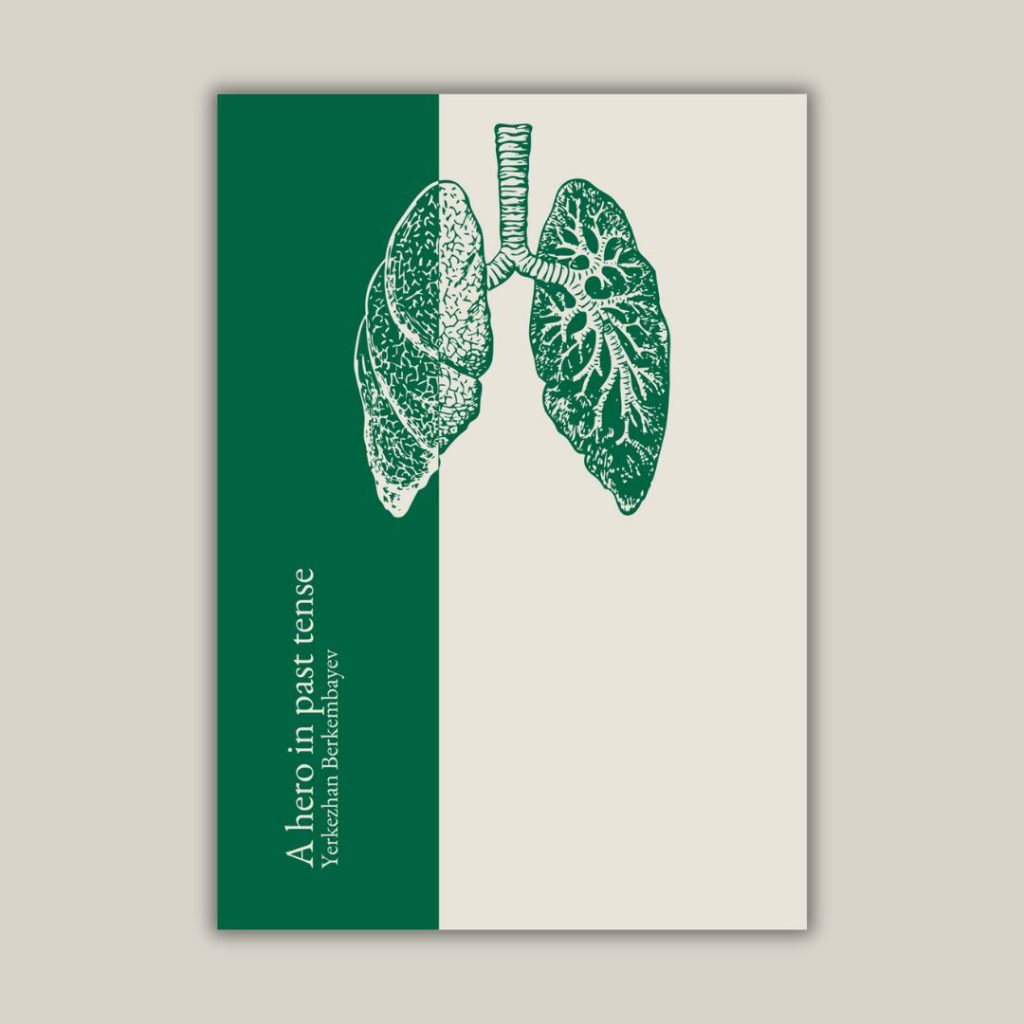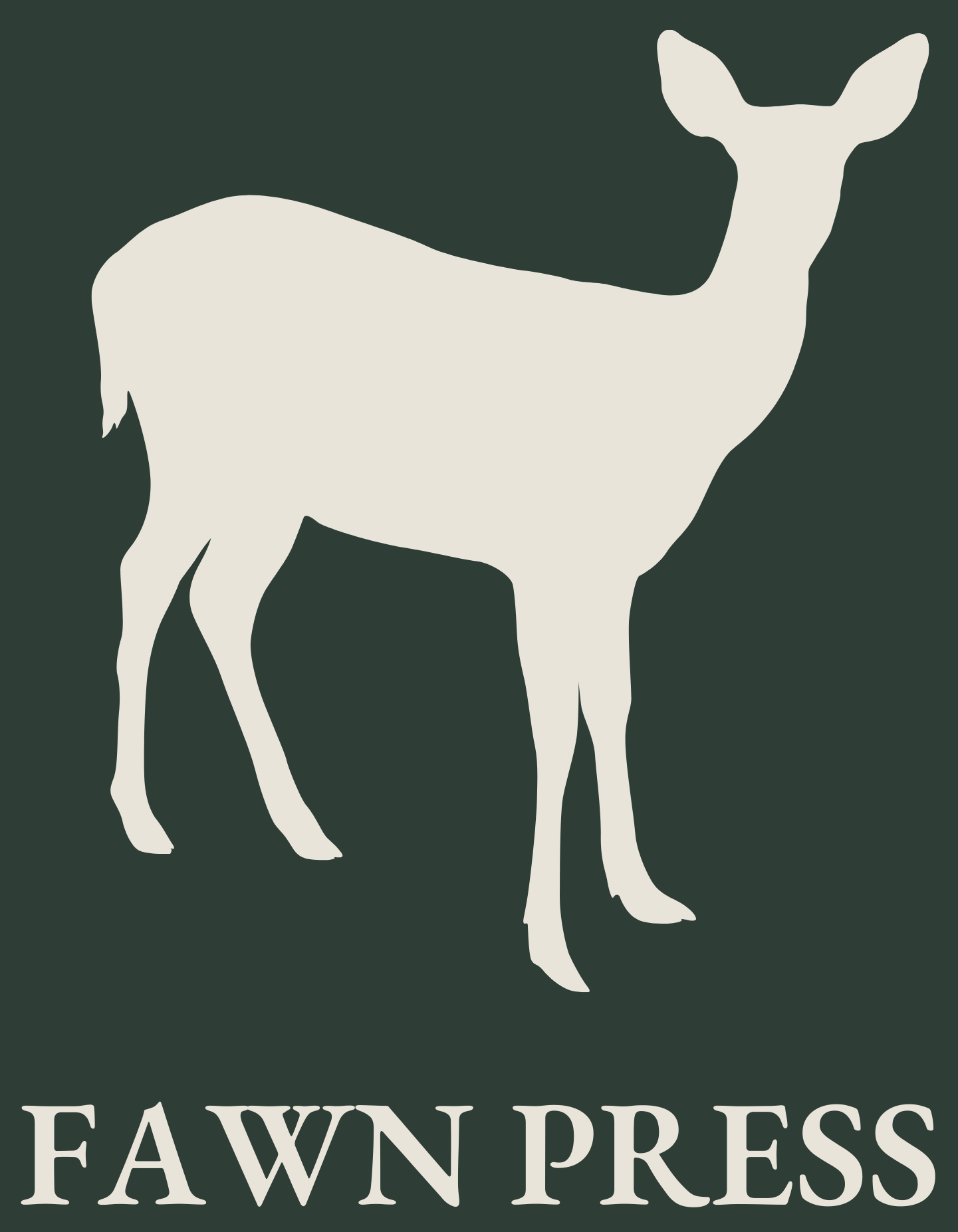
We are pleased to chat with the next poet as part of the Fawn Press pamphlet series, Yerkezhan Berkembayev, on the release of the newest pamphlet in the Fawn Press series, ‘A hero in past tense.’ Preorders are available here.
‘A hero in past tense’ is a searingly beautiful debut pamphlet from one of Birmingham’s most striking voices on the performance circuit.
Yerkezhan’s poems are a howl of yearning, and handle a deeply intimate exploration of the relationship with body, gender, and transness.
From the delirious potency of infatuation, to the fracturing landscapes of what home can be defined as, through the lens of family, belonging and identity, these poems question who we are when the validity of language falls short upon interrogation.
If you could describe your book in 5 words, what would they be?
Gender, Longing, Growth, Touch, Love.
Could you tell us a little about your pamphlet.
Overall, it represents my growing up and embracing the change that comes with it. Things like tackling the questions of identity and more specifically my gender, dealing with heartbreak, loneliness and everything else that comes with those sometimes difficult experiences that result in finding who you are as a person in the early stages of adult life. It’s not a perfectly curated piece of work that necessarily had a process to the writing and construction of it. It’s more of an amalgamation of some of my favourite poems that I’ve written in the last year or two. And it so happens that they all make sense together because they are all quite personal and come from deep within. Honest, I think. And I hope because of that truthfulness, people who read it, will find themselves, if not in all of these poems but at least in some lines or feelings that I’m trying to express.
If your pamphlet was a season, which would it be?
I want to be cheeky and say all of the seasons? Because the pamphlet is all about growth, it has some ups and some downs, some lovely moments and some more painful ones, but they all are equally important to the journey. But maybe autumn or spring. Because they are all about that change and transition from one to the next.
How did you decide on your title?
‘Hero in Past Tense’ is a line from one of the poems (and you will all find out which soon!). And it just felt like what the pamphlet as a whole is about. Confronting what identity means and what it feels like to hold so many different parts of yourself without necessarily knowing how they fit together or what it means to grow out of parts you thought were so intrinsically you. That line, to me, encapsulates that feeling of being kind to those past versions and letting them still exist in the past, valuing how much they contributed to who you are today, without necessarily erasing them but also realising you’ve grown and changed. And that it’s also okay to feel maybe some sort of grief about letting go those versions to welcome the new one.
You are well-known in Birmingham for your performance poetry, how did you find the process of applying your poems onto the page differed to when writing a poem to be spoken?
I do perform a lot of my poetry but I have always mainly written for the page. My poems are quite visual and play with lineation and that’s how I think about my writing. I usually apply the poems as they are on the page to the performance aspect later on. But I think ever since performing more, especially since being on the UniSlam team in 2023, rhythm and sounds have been working their way into my writing and influencing how my poems are more than previously. I think now I’m more conscious of both of those modes of expression and try to keep them both in mind when I’m writing.
You play with different languages and translations in your poetry, could you speak about your decisions to include those elements?
It was quite important to me to include some elements from the different languages I speak. It all comes back to identity. Just a few words to represent that is part of the authenticity and honesty I aimed for in the pamphlet. And I certainly don’t do as much of it as I’d like to or like some other poets that I admire so much. In comparison to poets such as Ayan Aden or Bohdan Piasecki, who completely intertwine and rely on other languages for effect in their poetry which is so incredible.
But I wanted to speak about another aspect of translations and languages. I realised the other day, that when I write a line, I often go to google translate it into another language that I speak, to see how it reads and sounds. Like even if I know the meaning, I want to see if it translates well and has the same effect as the line I wrote in English. Even though my poems are mostly in English, I guess it still influences my word choices, etc. I didn’t think about as a writing technique or a part of my process at all, but I suppose it is. It’s interesting to think how much being multilingual shapes my way of thinking and writing, even in those sometimes unseen ways.

You can order ‘Hero in past tense’ here now!
This project is made possible by Arts Council England

